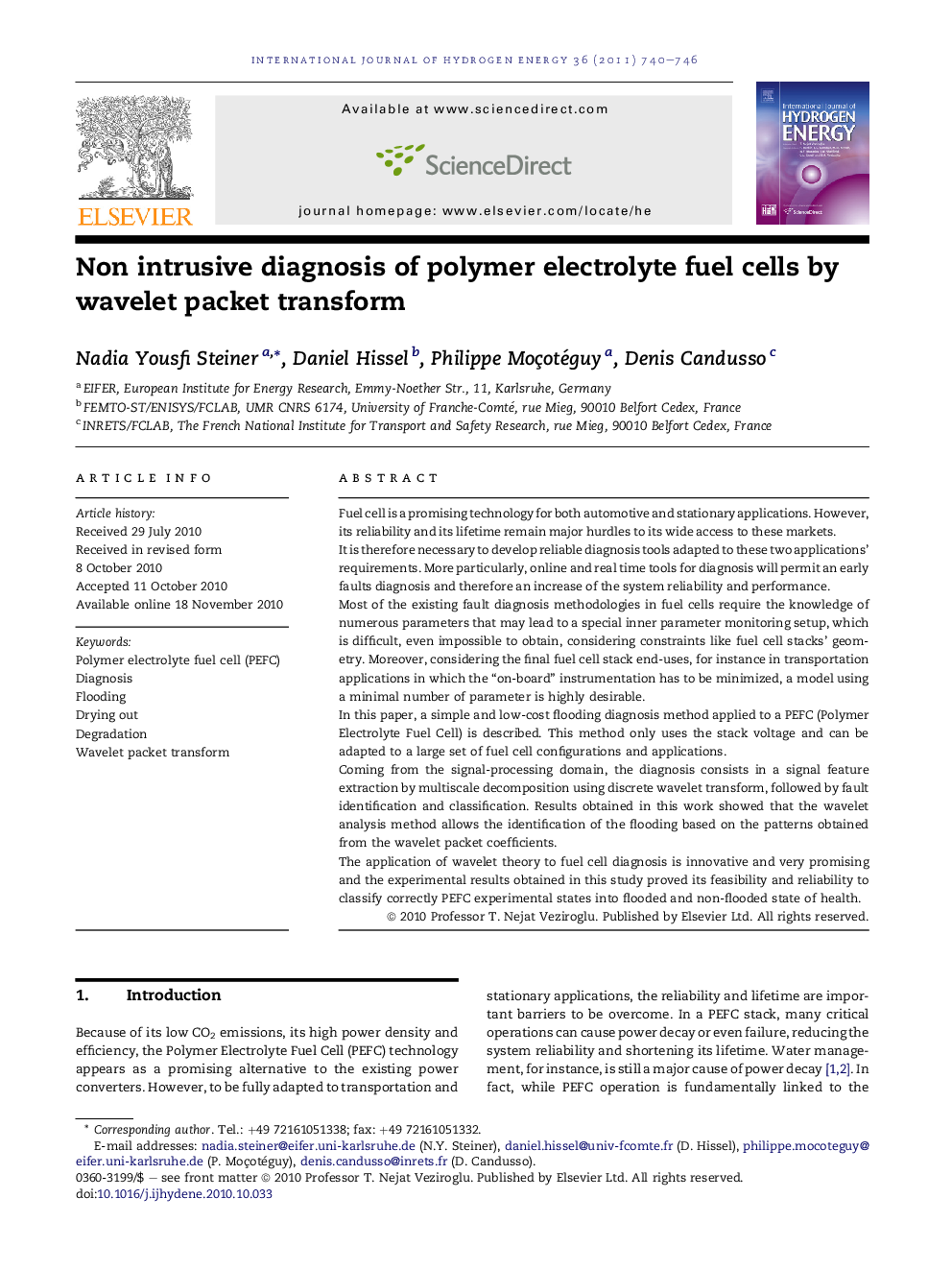| Article ID | Journal | Published Year | Pages | File Type |
|---|---|---|---|---|
| 1277829 | International Journal of Hydrogen Energy | 2011 | 7 Pages |
Fuel cell is a promising technology for both automotive and stationary applications. However, its reliability and its lifetime remain major hurdles to its wide access to these markets.It is therefore necessary to develop reliable diagnosis tools adapted to these two applications’ requirements. More particularly, online and real time tools for diagnosis will permit an early faults diagnosis and therefore an increase of the system reliability and performance.Most of the existing fault diagnosis methodologies in fuel cells require the knowledge of numerous parameters that may lead to a special inner parameter monitoring setup, which is difficult, even impossible to obtain, considering constraints like fuel cell stacks’ geometry. Moreover, considering the final fuel cell stack end-uses, for instance in transportation applications in which the “on-board” instrumentation has to be minimized, a model using a minimal number of parameter is highly desirable.In this paper, a simple and low-cost flooding diagnosis method applied to a PEFC (Polymer Electrolyte Fuel Cell) is described. This method only uses the stack voltage and can be adapted to a large set of fuel cell configurations and applications.Coming from the signal-processing domain, the diagnosis consists in a signal feature extraction by multiscale decomposition using discrete wavelet transform, followed by fault identification and classification. Results obtained in this work showed that the wavelet analysis method allows the identification of the flooding based on the patterns obtained from the wavelet packet coefficients.The application of wavelet theory to fuel cell diagnosis is innovative and very promising and the experimental results obtained in this study proved its feasibility and reliability to classify correctly PEFC experimental states into flooded and non-flooded state of health.
